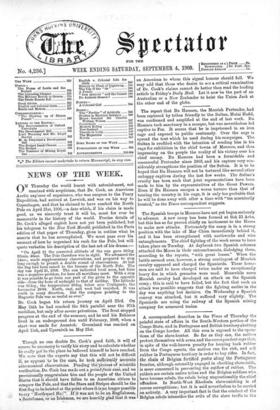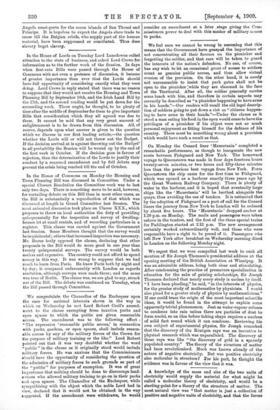A correspondent describes in the Times of Thursday the painful
state of affairs in the South-Western portion of the Congo State, and in Portuguese and British territory abutting on the Congo border. All this area is exposed to the opera- tions of the slave-hunter. So far as they can, the natives protect_themsfelves with arms, and the correspondent says that, in spite of the well-known penalty for keeping back rubber from the Congo agents, the natives run the risk, and sell rubber in Portuguese territory in order to buy rifles. In fact, the chain of .Belgian fortified pastes along the Portuguese frontier, although ostensibly engaged in checking slave-raids, is more concerned in preventing the outflow of rubber. The raideri are certain native tribes and the Belgian soldiers who, have become rebels, the,rebels being unquestionably the chief. 'offenders. In North-West Rhodesia slave-catching is of
coarse surreptitious; but .it is said nevertheless to be carried - •
on actively. A yery important fact is that the conduct of the
Belgian rebels intensifies the evils of the slave traffic to the
Angola coast-ports for the cocoa islands of San Thome and Principe. It is hopeless to expect the Angola slave trade to• cease till the Belgian_ rebels, who supply part of the human material, have been suppressed or conciliated. Thus does slavery beget blavery.







































